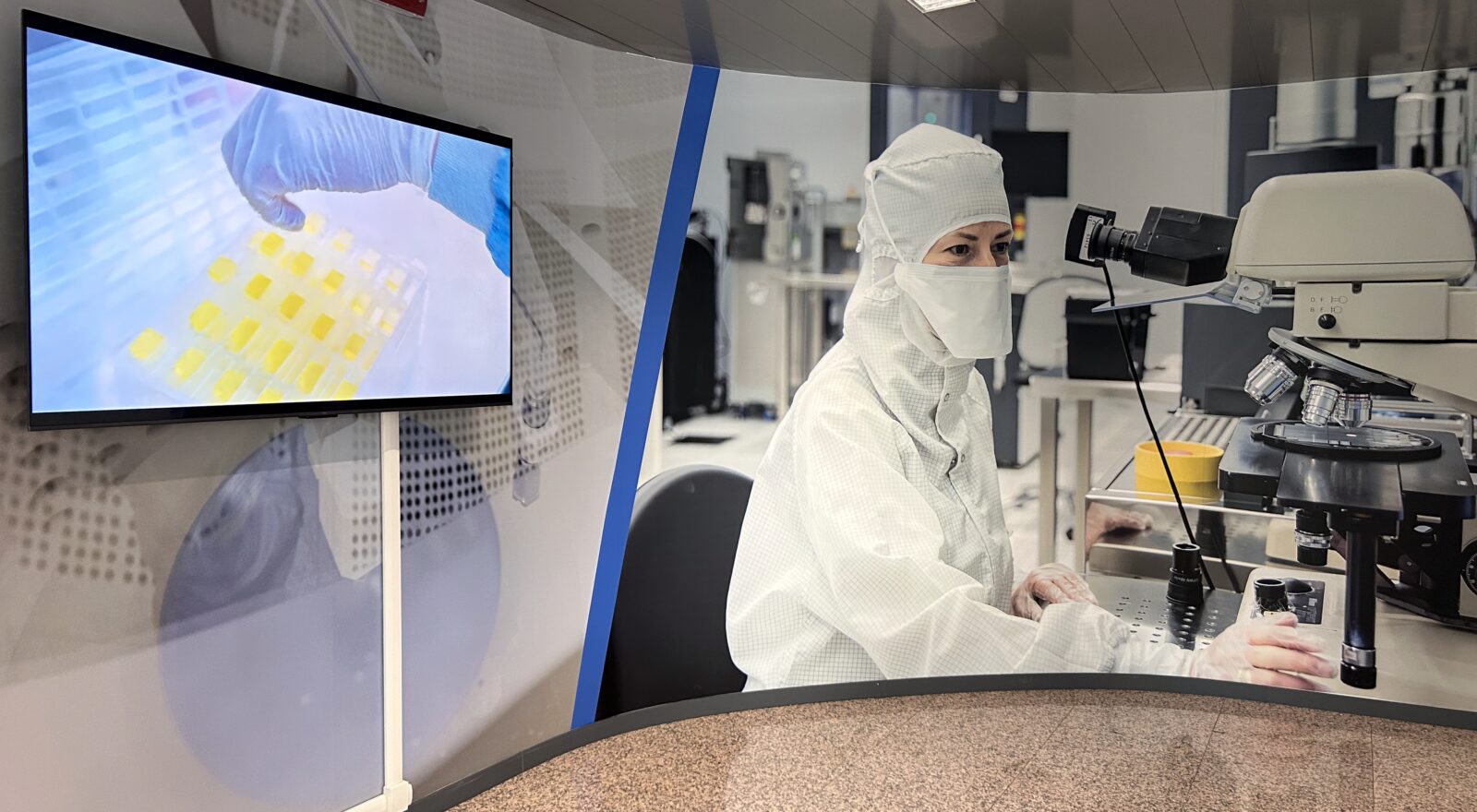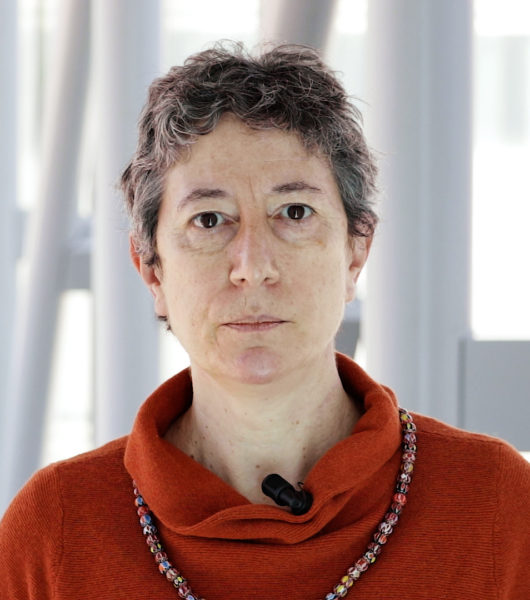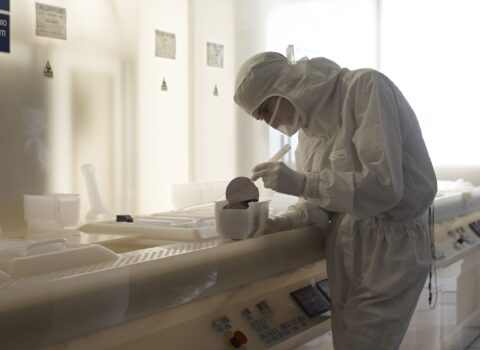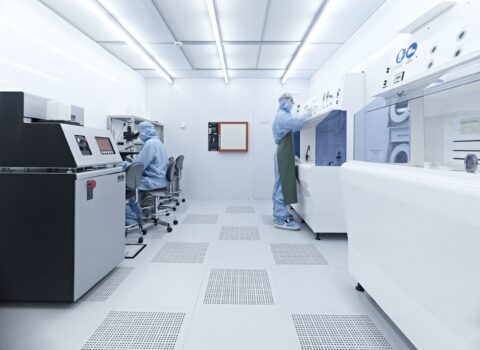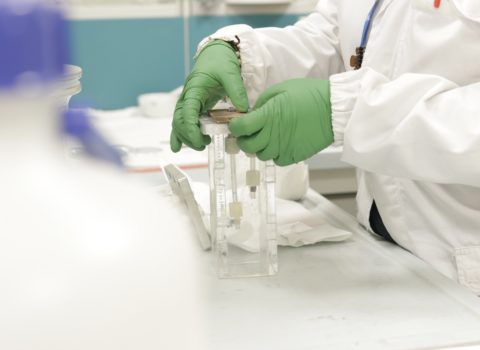
35 Years of the FBK Clean Rooms: From Microelectronics to Communication Technologies, the Roadmap to the Future Is Set
Thanks to its consolidated experience in the manufacture of silicon sensors, Fondazione Bruno Kessler has won a €50 million grant to develop a new generation of microelectromechanical sensors and systems. Over the next three years, the Foundation will invest a total of €82 million to expand its Clean Rooms.
To mark this milestone, FBK hosted an Open Facility Day, welcoming companies and stakeholders to explore the evolution of its laboratories. The event highlighted the path that has led to FBK’s unprecedented expansion, unveiling new development and innovation models created in collaboration with industry partners. It also underscored the Foundation’s long-standing expertise in silicon sensor production—now extending over three decades.
The occasion celebrated the successful conclusion of the IPCEI ME @FBK project—FBK’s first Important Project of Common European Interest (IPCEI)—after five years, during which €14 million was invested in infrastructure, labs, and talent. This effort not only led to technological advancements but also sparked new industrial collaborations.
Thanks to IPCEI ME funding, FBK has enhanced what is now its core infrastructure: the Clean Room. Cleaner than an operating room, this lab processes silicon wafers into radiation detectors. As part of the project, researchers advanced “3D integration” technology—combining a sensor with a readout chip or multiple sensors to build compact, energy-efficient systems. These include Silicon Photomultipliers (SiPMs), used in LiDAR systems for assisted and autonomous driving. With this capability, FBK is now among the few institutions in Europe able to independently design and manufacture such systems.
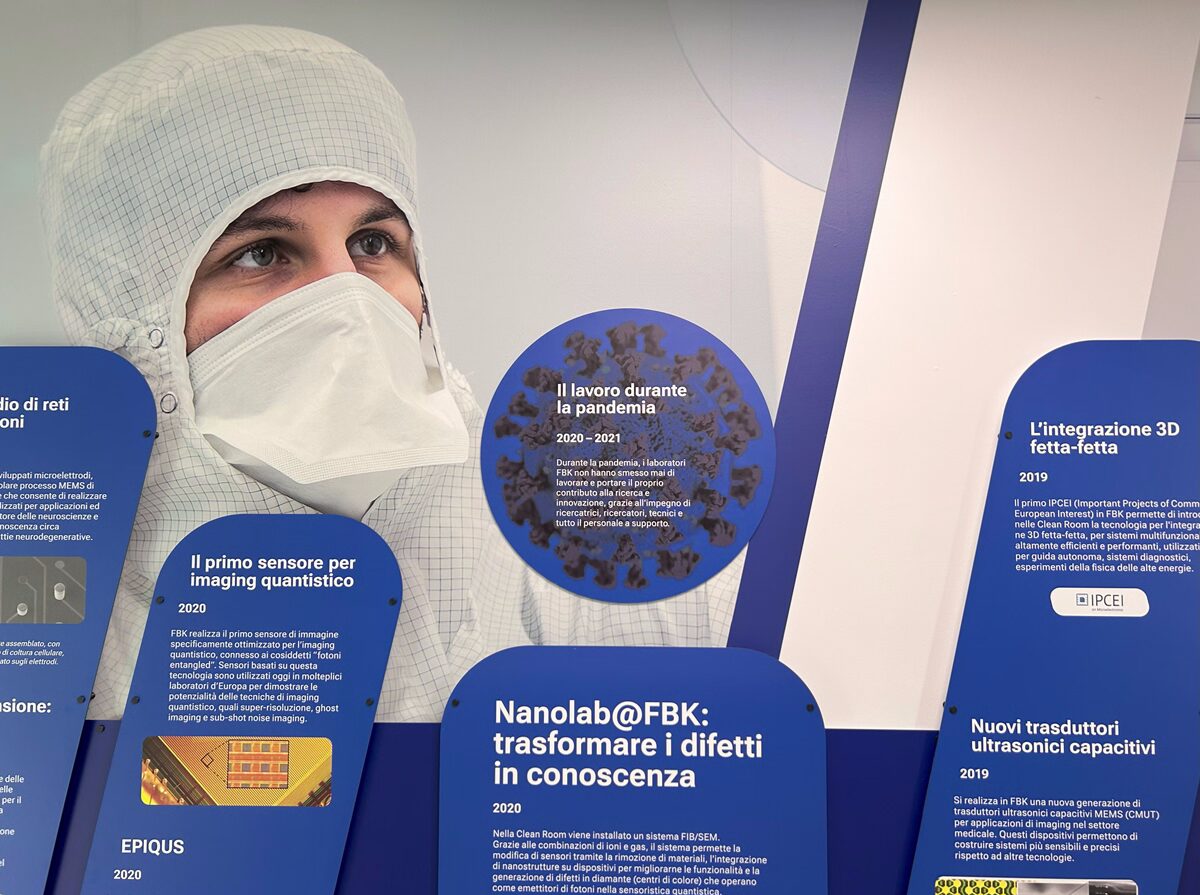 These achievements are showcased in the exhibition “35 Years of Clean Rooms”, inaugurated during the event.
These achievements are showcased in the exhibition “35 Years of Clean Rooms”, inaugurated during the event.
Lorenza Ferrario, Head of the Micro Nano Facility Unit and FBK’s IPCEI ME Project Manager, remarked: “Having a facility like the Clean Room has positioned FBK as a unique player in Italy—a hybrid between a basic research center and a prototype manufacturing hub. The sensors developed here, in facilities open to FBK researchers and external partners, are used in fundamental physics experiments, CERN’s particle accelerator, industrial quality control systems, autonomous vehicles, environmental monitoring, X-ray and PET diagnostics, and even on the International Space Station.”
But Fondazione bruno Kessler’s journey doesn’t stop here. It has now been awarded over €50 million under the new IPCEI ME/CT project of common European interest to support research and innovation in microelectronics and communication technologies. Fondazione Bruno Kessler is one of seven Italian partners selected by the European Commission for their strategic role in the continent’s future technology landscape, particularly for contributions expected to benefit both the economy and society.
With this new funding, FBK will further expand its infrastructure, hire 25 additional researchers, and broaden its machinery and materials portfolio—including work with silicon carbide and germanium. These materials are key to developing next-generation sensors for fields such as 5G/6G communications, autonomous mobility, artificial intelligence, quantum computing, and green energy.
Building on previous success, researchers will continue refining 3D integration technology to develop systems that are even more energy- and resource-efficient. This includes space communication components, high-efficiency detectors for particle physics made from silicon carbide, and photonic devices for quantum technologies.
The new IPCEI ME/CT project runs through 2029 and aligns with the goals of the European Chips Act, which seeks to strengthen Europe’s technological autonomy in wide-bandgap semiconductors and photonic integrated circuits.
FBK’s total investment of €82 million over the next three years will expand its Clean Rooms from 1,400 to 2,000 square meters.
To shape a collaborative roadmap, B2B meetings were held between FBK researchers and companies, aiming to align strategies and foster joint innovation.
IPCEI – Important Project of Common European Interest
IPCEIs are large-scale, cross-border industrial collaborations supported in strategic sectors of European industry. They promote innovation, growth, and competitiveness, encouraging cooperation between public and private sectors. Companies participating in IPCEIs benefit from significant national funding and support to develop cutting-edge technologies and build critical skills.
The European Commission coordinates and oversees the projects, while funding is administered by individual Member States. In Italy, an IPCEI Fund has been established to support Italian participants in the Important Projects of Common European Interest (IPCEI).
